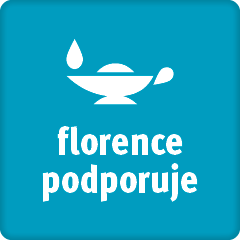


Číslo 1 / 2023
What is a neuroscience nurse?
What is a neuroscience nurse?
Neuroscience nurses specialize in the care of patients with nervous system diseases and/or disorders. They help manage the disease processes as well as assist in rehabilitation. Some neurological disorders neuroscience nurses may help manage are:
→ stroke,
→ brain injuries,
→ spinal cord injuries,
→ epilepsy,
→ multiple sclerosis,
→ Parkinson’s disease,
→ encephalitis.
Neuroscience nurses specialize in the human neurological system. Those interested in this field of nursing should have an interest in the functions of the brain, spinal cord, and nerves. It is a difficult specialty as these neurological diseases and disorders can affect the other systems of the body. Moreover, healing and rehabilitation can sometimes take time, so a neuroscience nurse should have strong assessment skills and a lot of patience.
The roles and duties of a neuroscience nurse mainly focus on stabilizing and rehabilitating patients who have neurological disorders or suffer from a spinal cord or brain injury. Some roles and duties include:
→ assess and identify the needs of a neurological patient with the healthcare team to implement medical or pharmacological interventions,
→ evaluate a patient’s response to treatment,
→ offer comfort to patients and families,
→ provide resources to patients and families to assist with the discharge process,
→ document thorough and detailed information in the patients’ medical records to track the healing process.
Neuroscience nurses perform many tasks. These include performing physical assessments, performing neurological exams, assist with mobility, activities of daily living and with physical rehabilitation.
Neuroscience nurses can work in many different care areas. These include hospitals, stroke units, intensive care, pediatric nursing units, operating rooms, clinical education, outpatient clinics, rehabilitation facilities or elder care facilities.
Slovníček
disorder – porucha, potíže; nepořádek; nepokoje
to manage – zvládnout, dokázat; poradit si; řídit, vést; spravovat
healing – léčení, hojení, uzdravování
assessment – posouzení; hodnocení; odhad; ocenění
to include – zahrnout, zahrnovat; pojmout; započítat
response – reakce, odpověď, ohlas
comfort – útěcha, posila; komfort, pohodlí
discharge process – postup při propouštění pacienta
thorough – důkladný, detailní; pečlivý, svědomitý; dokonalý
record – záznam; zápis, protokol; rekord
to track – sledovat; stopovat
task – úkol, zadání, práce
outpatient clinic – poliklinika, ambulance
Source: Neuroscience Nurse. [online]. Available from: www.registerednursing.org.
Další články v tomto čísle
- Editorial
- Důraz na praktičnost ve vzdělávání sester
- Minulost, současnost a budoucnost – 75. výročí založení Střední zdravotnické školy Brno, Jaselská, p. o.
- Naším cílem je stabilizovaný, dobře kompenzovaný pacient
- Centrum pro roztroušenou sklerózu v Teplicích poskytuje komplexní služby pacientům, které trápí chronické nevyléčitelné onemocnění
- Pacientům s roztroušenou sklerózou pomáhá pacientská organizace Unie ROSKA již 30 let
- Psychoterapeut v péči o pacienta s roztroušenou sklerózou
- Registr ReMuS
- Keď chceš, ale nemôžeš
- Následná péče – rehabilitační cesta člověka po prodělaném poškození mozku





















